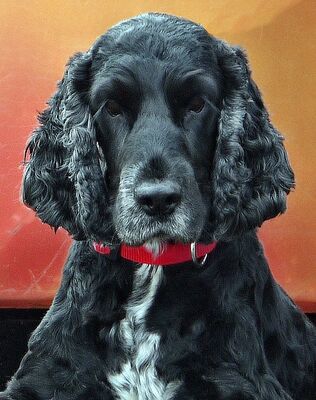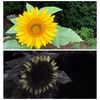Anti-Alias - yes or no?
Nov 18, 2019 10:17:58 #
It seems that manufacturers are now leaving anti aliasing filters off many new cameras. Apparently, with new sensors, moire is less likely to be a problem in future. Until recently it has been easier (much easier) to sharpen (in PP or in camera) that tiny little bit extra to overcome the difference between with anti-alias or without, whereas moire, which is the reason for including an anti-alias filter, is very difficult, if at all, to get rid of. However, as the pixel race resumes, and sensors become more crowded, I believe moire will continue (or return) as a problem.
Have Hogs any thoughts on this, based on practical experience, or just logical thought, perhaps on the problems of moire and the advantages ar otherwise of anti-alias (low pass) filters?
Have Hogs any thoughts on this, based on practical experience, or just logical thought, perhaps on the problems of moire and the advantages ar otherwise of anti-alias (low pass) filters?
Nov 18, 2019 10:20:12 #
Please elaborate with at least 3 cameras that demonstrate this 'trend' you've discovered. You'll need three or more manufacturers to make this a plural trend within the industry.
Nov 18, 2019 10:31:00 #
Nov 18, 2019 10:32:53 #
Delderby wrote:
It seems that manufacturers are now leaving anti a... (show quote)
It helps for video, is marginally helpful for stills. The anti-alias filter has been removed from most recent Panasonic Lumix cameras, to gain a smidge of sharpness and detail that would be obscured by an AA filter. Panasonic put it back into their new S1H, the video-centric version of the S1 full frame mirrorless camera. Otherwise, those two use exactly the same sensor.
If you get moire at all, in a video, it is very distracting. We've all seen newscasters wearing fine-patterned suit coats or shirts or ties, and watched them shimmer as they moved around. It's distracting.
Nov 18, 2019 10:33:37 #
Perhaps they will equip processors with programming that will detect and remove, or reduce, moire in repetitive patterns. That would eliminate the need for low pass filters and make for sharper images.
Nov 18, 2019 10:35:15 #
I will say this about the anti aliasing filter on my Canon 5D Mk IV. I think Canon did a poor job with it. I recently took my body in for it's sensor cleaning and got it back from Canon the next day. I tested it to see how clean it was and found more spots in my images than before I had taken it in for cleaning. I took it back the next day and told them that I wasn't happy with the service. They did it again on both of my camera bodies while I waited. Took 2 hours. Took my 7D II and 5D IV home and tested them as before. The 7D II is very clean. I was told by Canon that the 5D IV has some dust between the sensor and the anti-aliasing filter and the camera would need to be disassembled to fix it. I didn't even ask how much that would cost and they didn't offer that information. I checked the 5D IV when I got home and I'm surprised that there are a lot of spots that I can still see. I mean a LOT. I'm tempted to have them disassemble the camera to fix it but reluctant because it might happen again. Personally I don't think it should happen in the first place.
Nov 18, 2019 10:42:12 #
jeep_daddy wrote:
I will say this about the anti aliasing filter on ... (show quote)
I would not accept a camera with a sensor like that! If they can't get all the dust out, it is an inferior product. I'd raise a very loud ruckus about that one. They should replace it if they can't clean it.
Nov 18, 2019 10:51:09 #
burkphoto wrote:
I would not accept a camera with a sensor like that! If they can't get all the dust out, it is an inferior product. I'd raise a very loud ruckus about that one. They should replace it if they can't clean it.
Agreed.
Nov 18, 2019 10:52:01 #
Delderby wrote:
Panasonic G9, Nikon 850, latest Canons
Plus the Fuji X series cameras. None of them have had any-alias filters for years.
Nov 18, 2019 10:54:19 #
CHG_CANON wrote:
CHG_CANON, Please elaborate with at least 3 cameras that demonstrate this 'trend' you've discovered. You'll need three or more manufacturers to make this a plural trend within the industry.
It appears you are employing a pearl of wisdom as to what constitutes a "trend within the industry."
Not having been on the business side of any industry, I have two questions for you:
1. Did you specify the number three because the OP’s claim pertains to the camera manufacturing industry (at present time,) or as a general principle? If the former, why?
2. Would you be so kind, please, to either provide a reference as to this "pearl" OR, if this is too much of a request, what type of keyword phrase I might employ using an internet search engine on my own?
I appreciate your time,
lev29 (most ignorant in some respects)

Nov 18, 2019 10:54:36 #
Fredrick wrote:
Plus the Fuji X series cameras. None of them have had any-alias filters for years.
Sorry, meant to say none of them have had anti-alias filters for years.
Nov 18, 2019 11:04:20 #
burkphoto wrote:
I would not accept a camera with a sensor like that! If they can't get all the dust out, it is an inferior product. I'd raise a very loud ruckus about that one. They should replace it if they can't clean it.
Of course one could ask why the sensor was so dirty in the first place. I have a 5D mk IV and there is very little in the way of dust and or dirt on my sensor and I use a Canon EF 28-300L lens on that camera quite often. I guess the myth about that lens being a dust pumper isn't true. But then I usually don't shoot in exceptionally dusty dirty environments and I learned my lesson a long time ago about changing lenses in less than ideal locations.
Nov 18, 2019 11:34:43 #
Fredrick wrote:
Sorry, meant to say none of them have had anti-alias filters for years.
I hadn't even noticed. With suggestive text apps, typos are now so common place it is easy to read what they should have said

Nov 18, 2019 12:08:28 #
rmorrison1116 wrote:
Of course one could ask why the sensor was so dirty in the first place. I have a 5D mk IV and there is very little in the way of dust and or dirt on my sensor and I use a Canon EF 28-300L lens on that camera quite often. I guess the myth about that lens being a dust pumper isn't true. But then I usually don't shoot in exceptionally dusty dirty environments and I learned my lesson a long time ago about changing lenses in less than ideal locations.
At Herff Jones Photography (scarfed up by Lifetouch in 2011), we had about 420 midrange Canons of various models from 5D to 50D. Most of the few issues we had with dust were from two sources:
• Changing lenses in dusty environments (Most of our photographers never removed the one zoom lens we provided, but a few renegades did use their own lenses on occasion. That's why we had few issues with dust.)
• The camera itself generating lubricant droplets, bits of mirror dampening foam, and metal particles from the moving parts. This is the most difficult cleaning challenge... It usually requires both a dusting with a blower bulb and a gentle wet cleaning with Photosol Eclipse fluid (100% methanol) and Sensor Swabs.
I know some old film lenses were not sealed well, and did occasionally suck in dust during zooming. But I have never encountered that issue.
Delkin Devices sells a Sensor Scope that works well to illuminate the sensor and magnify it so you can check for dust before, during, and after cleaning. Who ever serviced the gentleman's 5D Mark IV should have used one to check for dust. OR, they should have tested the camera some other way, to verify no dust remained.
Nov 18, 2019 14:22:47 #
Delderby wrote:
It seems that manufacturers are now leaving anti a... (show quote)
If you go back and look you'll find that as pixel density has gone up the use of an anti aliasing filter has decreased. Moire apparently is less of a problem for sensors with small pixel sites. For instance a full frame Nikon with a 24MP sensor will have the filter while a crop sensor Nikon with a 24MP sensor will not. Same pixel count but smaller pixels.
If you want to reply, then register here. Registration is free and your account is created instantly, so you can post right away.








